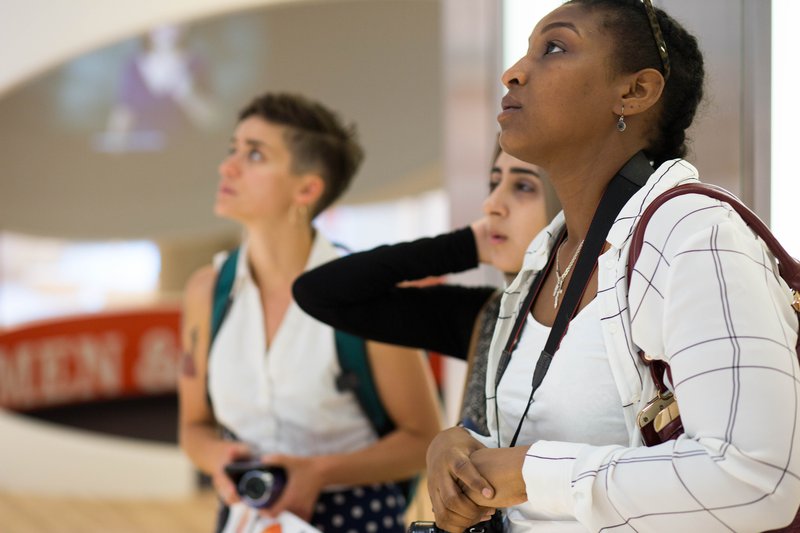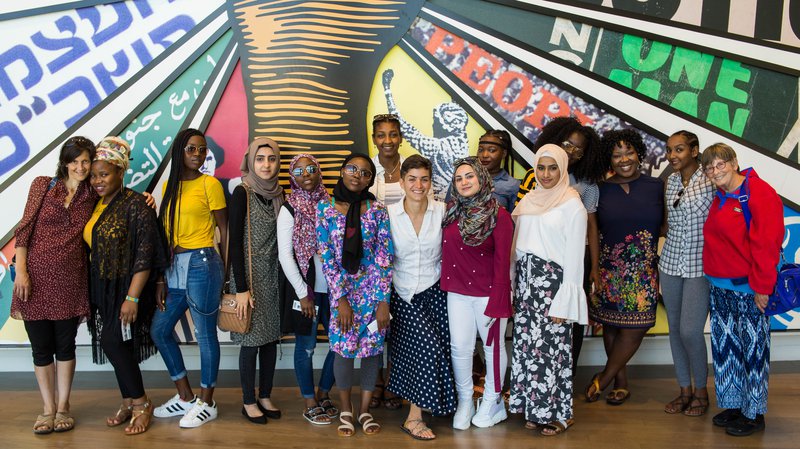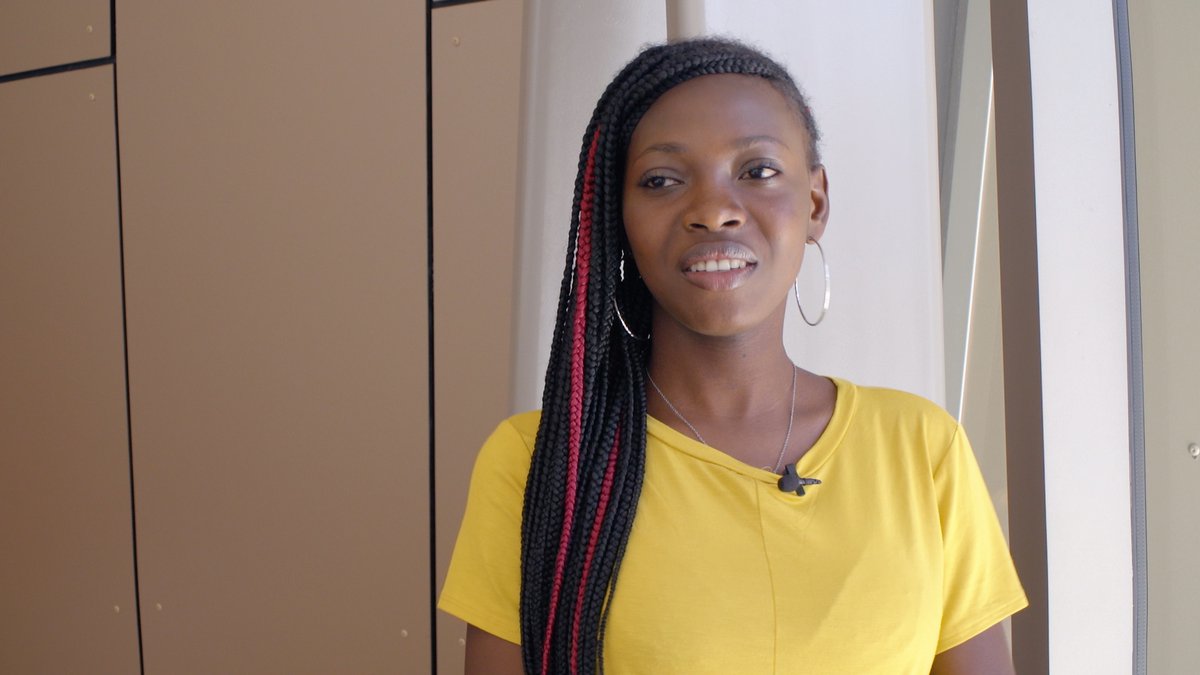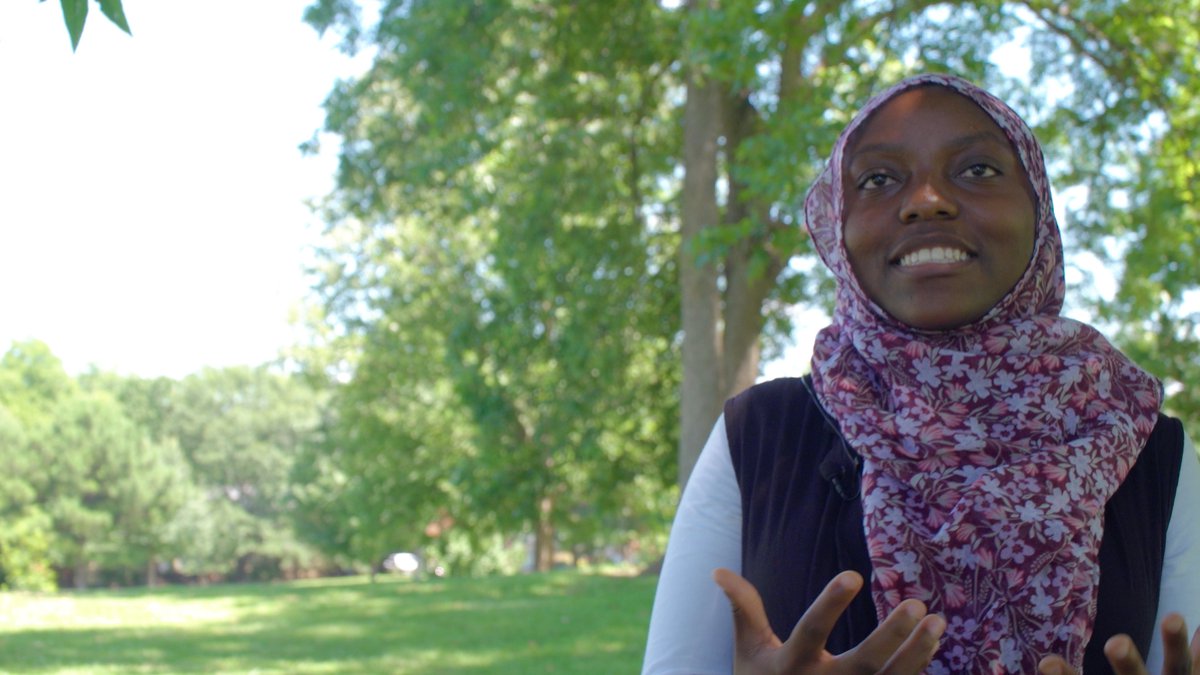Last week, 12 refugee women from across the globe traveled through the South on a pilgrimage to see and learn from civil rights heroes that lived, fought and changed the country with their sacrifices.
Starting in New Haven, Conn., this pilgrimage took the women to Richmond, Harrisonburg and Falls Church in Virginia; to Cumming and Atlanta; and to Birmingham and Montgomery, where they visited historical landmarks so each woman could experience the history of her new country.
According to Laurel McCormack, a Forsyth Central High School grad, former FCN intern and case management and acculturation coordinator for Integrated Refugee and Immigrant Services (IRIS), this is the maiden voyage of their civil rights pilgrimage program — but the idea has been in the works for several years.

"A couple of years ago, after studying Martin Luther King’s letter from Birmingham Jail with some adult refugees, we said, 'Wouldn’t it be incredible to take some of our friends to our home states on a civil rights pilgrimage.' But we couldn’t figure out how to do it," McCormack said.
McCormack said a “perfect storm of a million pieces came together," and they were able to raise enough money to fund the trip. As Forsyth County residents, McCormack’s family volunteered to house the women during their time in Georgia.
McCormack said that IRIS is a New Haven-based resettlement organization that deals with several hundred newcomer refugees and special immigrant visa holders in the Connecticut area each year.
"We provide everything from finding and setting up their initial apartments, to case management, school enrollment, health coordination and job help,” she said.

On their trip through the South, the women visited places like the Center for Civil and Human Rights and the Martin Luther King Center and Freedom Park in Atlanta; a nonviolence summer camp in Clarkston; the Birmingham Civil Rights Institute and 16th Street Baptist Church in Birmingham; and the National Memorial for Peace and Justice in Montgomery.
McCormack said that part of their goal for the trip was to show the group “the incredible bravery and resilience” American Civil Rights leaders have shown throughout history, and how they “overcame so many obstacles” in the face of violence, oppression and racism.
"They did it for the good of young people many years later," she said.
McCormack hopes this will also serve as a learning experience for the women, so each can take the lessons and use them to educate others. She added that they hoped that during the trip the women would show people that refugees and immigrants are just normal people, forced into hard situations, who desperately want to be citizens.

"They are here because they have been invited by the U.S. government," she said, explaining the status of the women in her group. "They are ready to contribute to our communities. They want to know their American neighbors, they want to find a way to take on American traditions and values ... while also keeping some of their beliefs and values from home."
McCormack said it was especially important that they were taking young women on the pilgrimage because their demographic is regularly overlooked for opportunities to tell their story.
"They have a perspective that we won't get elsewhere," she said. “And they would likely tell you, ‘We need a chance to tell our story.’”
In their words


Fallon Atuyuwe
Atuyuwe, an 18-year-old, from Malawi, a small nation in Southwest Africa, has lived in the United States for two years after her family left the country as refugees. She said that before making the pilgrimage, she was most interested in seeing the reality of what she had been studying in books and videos for years.
"I feel like the history in Africa and here is kind of different,” Atuyuwe said. “Because when they told us about the civil rights movement, they never said that there were some white people who volunteered to be part of the movement. They only mentioned the African American people being the one doing the marches."
When they finally visited museums, she said they finally realized how multicultural the civil rights movement was. Like McCormack hoped, Atuyuwe said that she was going to spread what she learned to her friends and family.
"I hope to gain something I can teach not only to my siblings, but some of my friends," she said. "Because not everybody had a chance to come here and learn everything."

Deyana Almashhadani
Almashhadani, a 19-year-old Iraqi refugee, said that she fled Iraq and Syria following wars, and finally made it to the U.S. five years ago after living in Turkey for three years. She said that what excited her most about the civil rights pilgrimage was seeing living history in the museums.
Almashhadani explained that she felt a connection to the oppressed people in the museums, because as a young refugee fleeing conflicts she regularly experienced discrimination and hate.
"When I lived in Syria there were too many people saying, 'Why did you come here? Why did you leave your country?' and that was so rude because they knew my country had war. It's so worse there," Almashhadani said. Since getting to the U.S., she said that she has not felt discriminated against.
Almashhadani said that coming to the U.S. also broke a lot of false perceptions that are commonly seen overseas. She said that it's commonly thought that life in the U.S. is somehow easier or better, when really Americans face similar problems in their daily life.
"I feel safe here," she said. "I have more opportunity to do and reach all my goals."

Aline Mbaga
Mbaga, an 18-year-old refugee from Congo-Brazzaville, a nation in central Africa, said that her mother was a refugee from the war in Rwanda and they came to the U.S. so she could get a better education.
Like Atuyuwe, Mbaga said that what surprised her most about coming to the U.S. and learning about its history was how much got lost in translation between reality and her education in Africa.
"I just feel like I'm understanding more than what I did when I was in school," she said. "This is the better place to learn firsthand."
She said that anyone wondering why refugees want to come to the U.S. should think about the opportunities available here and "not judge a book by its cover."
"They are just judging us by what we look like ... but everyone is equal," she said.


Gladys Mwilelo
Mwilelo, a 20-year-old from the Democratic Republic of Congo, said that in her opinion IRIS gives hope for people who often have nothing.
"It brings hope to those who have lost everything in their lives," Mwilelo said, standing in the shade at Atlanta’s Freedom Park. "I am one of those. Moving to this country not knowing anybody, IRIS was there to help me find a home where I could at least lay my head down."
Mwilelo said that when she is asked what brought her to resettle in the U.S. she often answers "it's a long story," because since she was 2 years old her family has been seeking asylum from the wars in Central Africa. Since coming to the U.S., she has come close to getting her American citizenship and says that because of that U.S. History is important to her in a big way.
"The story of this country matters to me,” Mwilelo said. “Also, it’s important to me to be able to connect myself to it. It is very important for us to always be in touch, to stay in touch with the story that happened long years ago."
She added that the trip, and seeing the different places and people, uplifted her, energizing her for life as a young black woman with a voice.
Like nearly all of the women, she said that before coming to the U.S. she lived under the perception that it was a "paradise" with no pain, suffering, hunger or homelessness. Quickly she realized that even though there are many more opportunities, problems still exist.
"I was really shocked, but at the same time it made me grow up my mind," she said. "It doesn't matter where you go or where you are, each country in this world has its own problems."


Fatima Al Rashed
Al Rashed, an 18-year-old from Iraq, said that she came to the U.S. with her parents and siblings nearly three years ago.
Like Mbaga, Al Rashed said that one huge thing that sets the U.S. apart from the rest of the world, in her eyes, is the educational opportunities that are available here.
She said that she was stunned by how many chances to learn and achieve goals the U.S. educational system provides.
"There are so many opportunities, and so many resources and ways to develop yourself, to learn about the world ... which we don’t have in Iraq," Al Rashed said. "There are no activities, no clubs, no organizations where you can meet other people, hear their opinion and learn from them (in Iraq)."
She said that her main goal for the pilgrimage is to learn as much about U.S. civil rights history as she can in preparation for the day that she becomes a citizen and it becomes part of her history.
"I do feel that I am required to learn about the history of this country, because it will also be my country," she said.
So far, she said her favorite piece of history is a quote from Dr. Martin Luther King Jr., on life and happiness.
“It's not how long live, it's how you live,” she said.

